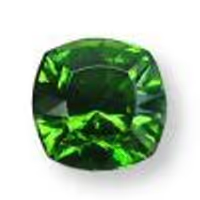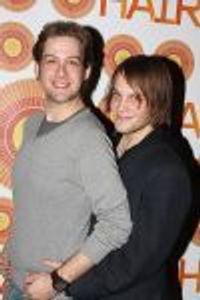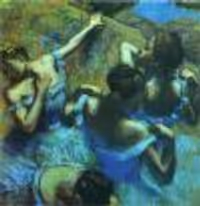HAiR: The Intellectual Conversation Thread
#50 HAIR: The Intellectual Conversation Thread
Posted: 8/24/09 at 7:22pm
I've always had a soft spot for "Easy to Be Hard" because it reveals so clearly the blind spot within the Tribe that was evident even back then. Now, when we have a gazillion essays and articles and books about the beginning of the Summer of Love being the end of the Summer of Love, it makes it even more poignant to me. For so many, it was all about the scene, and the clothing, and the drugs, and the sex, and not about the deeper social and political issues. I suppose it...and Hair...thus mirrors our very discussion quite well.
I think that's why Hair has lasted, in spite of its weak book. It's not just the incredible music but it's also its nuanced look at the 60s and human nature.
Updated On: 8/24/09 at 07:22 PM
AndAllThatJazz22
Broadway Legend Joined: 11/8/08
#51 HAIR: The Intellectual Conversation Thread
Posted: 8/24/09 at 7:26pm
Naw, no one is going out of their way to be mean...but some of the things that have been said aren't exactly the nicest.
"Consider this a place where the social, cultural, and political impact of HAiR can be discussed without competing with the newest picture of Gavin Creel's dog for attention."
"oh my god, there are HAIR fans who actually like talking about things rather than the cast getting naked, and the fun songs you get to dance too??"
Back on topic:
"I wonder if anything about it was thought to be intellectual at the time?"
Absolutely. This is a piece with very strong views on things like war, government, the enviorment(sp?), love, drugs ect... all of which were (and still are) very serious topics. Now, were a lot of the views expressed in HA(i)R considered to be radical, naive, and socially unacceptable? Yes. HAiR expresses many views that were CRAZY at the time and might have been seen as stupid, but either way...it still opened up discussions to talk about these very important topics and probably changed the opinions of many people.
-Danmeg's 10 year old son.
Broadway Legend Joined: 12/31/69
#52 HAIR: The Intellectual Conversation Thread
Posted: 8/24/09 at 7:29pm
One of the things I love about this revival is Gavin's Claude. He has such a good, unique understanding of the character that made me fall in love with the show the way I didn't at the Park (no offense to Hanke). Gavin talked about it in an interview once, I wish I could remember what it was, he said Claude is looking out the window, wanting to be outside, but he's inside with his face pressed to the glass. Anyone know what I'm talking about? ![]()
#53 HAIR: The Intellectual Conversation Thread
Posted: 8/24/09 at 7:30pmThat is such a sad image. I see it, though.
Craww
Broadway Legend Joined: 12/13/06
#54 HAIR: The Intellectual Conversation Thread
Posted: 8/24/09 at 7:34pm
I think I would have just enjoyed the thread more if it were titled "HAIR: SRS BSNS".
As much as I love the show, I'm not sure either thread is for me. I'd rather talk about the the shifting social context than understudies, but it's possible I'd rather talk about Gavin's dog than Claude's bad trip. (I like Gavin's dog more than I like Gavin, that's for sure.)
Maybe the biggest disconnect between me and the intellectual discussion of Hair is the fact that The Bad Trip is my least favorite moment of the show. Beyond the fact that it drags, I think it almost becomes too obvious in its obfuscation. Of course it's going to be the moment where most interpretation is leveled, but it says less to me than some of the more succinct moments.
#55 HAIR: The Intellectual Conversation Thread
Posted: 8/24/09 at 7:42pm
I think Claude represents a good majority of people, which is why I love the character so much. Deep down, he knows that the war is wrong, and that innocent blood is being shed. However, he still feels an allegiance to his country--which I admire.
First of all, I think dissent (and protests done correctly) are extremely patriotic. Don't forget, our founding fathers WERE seen as radicals. The Boston Tea Party was the ULTIMATE rebellion at the time.
I am a very very left leaning person. I have participated in several marches not only against the war, but in support of some of the world's social injustices (darfur, the congo etc). However, I can completely relate to Claude in the sense that if I were to ever be drafted into war, I don't think I could not go. I still have a very strong allegiance to my country. Perhaps its because I'm a government teacher, but I freaking love the Constitution. I love the ideas behind it, and I love this country--despite its many many flaws. I think, when push came to shove, I would feel like I had to stand up and defend my country. Even if I didn't necessarily agree with what we were fighting for.
Leia947
Broadway Star Joined: 6/17/09
#56 HAIR: The Intellectual Conversation Thread
Posted: 8/24/09 at 7:42pm
Speaking of the trip sequence, maybe someone can help me figure something out. I understand what is going on there, but one thing always confused me and no matter what I do, I can't seem to wrap my head around it. Is there any specific significance to George Washington (Shelia) being a female, Abe Lincoln (Krystal) being a black female, Scarlett O'Hara (Woof) being a male and Clark Gable (Jeanie) being female? They keep Custer, Aretha, and John Wilkes Booth their respective sexes. Or is more of a "Well, he's tripping, so sh*t's gonna be weird." sort of thing?
"Even I think that's hot, and I'm a straight guy. If I ever become gay he is the reason." - Drunk Chita Rivera on Gavin Creel
"Leia947 is my theatre mamma, and I love her for it." - AndAllThatJazz22
#57 HAIR: The Intellectual Conversation Thread
Posted: 8/24/09 at 7:46pm
Jazzy...but no one was calling any individuals out. You cannot blame someone if THAT type of conversation doesn't interest them and they'd rather talk about the show.
I've pretty much stopped going to the other threads for the same reason: it's not for me. I'm a fan of the show, and indeed of some of the performers....but I am not a "fangirl". There is no disrespect of those that are, but I get no stimulation from those kind of conversations.
#58 HAIR: The Intellectual Conversation Thread
Posted: 8/24/09 at 8:00pmI just want to say that one of the things that struck me most about this show/ production is how ineffectual the hippie movement seemed to be. They protested, great. the war went on, Claude and many other died/ had their lives ruined. I really liked HaiR, but it left me feeling powerless/helpless...
#59 HAIR: The Intellectual Conversation Thread
Posted: 8/24/09 at 8:42pm
It's true; the Vietnam War would go on for another 8 years after the musical's premiere off-Broadway (though America had withdrawn after the Paris Peace Accords, about 6 years from the opening of the show).
Despite how ineffectual the movement seems in the revival, I think the show also highlights the strengths, and the idea that the true ideals of the movement were what mattered, not their (lack of) success.
#60HAIR: the Discussion thread
Posted: 8/24/09 at 9:05pm
"First of all, I think dissent (and protests done correctly) are extremely patriotic. Don't forget, our founding fathers WERE seen as radicals. The Boston Tea Party was the ULTIMATE rebellion at the time. "
I totally agree. Dissent is extremely patriotic, because it shows that you're willing to put yourself on the line in order to change the country for the better. Without dissent, who knows if I would be able to vote, or get a divorce, or a job. But your Revolution reference is kind of a lame example, because the entire revolution was the result of greed really, and Britain's least oppressed colony rebelled.
Now on another note, I personally didn't come out of the show thinking that change or the peace movement was hopeless
. But I will say that I never considered Good Morning Starshine sad until I saw the show. It seemed to me that it was one last desperate hope to grasp about things that were being lost.
But I'll say it again, more than anything this show inspires me to change the world.
#61 HAIR: The Intellectual Conversation Thread
Posted: 8/24/09 at 9:07pm
Just because their immediate goals weren't achieved doesn't mean it was ineffectual. I always thought (and this may be the DC-native in me) that this era encouraged a younger political movement. Before the civil rights movement, politics seemed to be catered towards middle class families, and run by white men. The anti-war protests amongst college students in the 60s were a precursor to things like Obama's grassroots campaign online.
Craww, you could always post in both threads. ![]()
Wanting life but never knowing how
#62 HAIR: The Intellectual Conversation Thread
Posted: 8/24/09 at 9:43pm
Leia, you made one little goof. Jeanie is Custer, not Clark Gable, which makes more sense to me because that blends gender lines better having both a male O'Hara and Gable. A black female Lincoln is the direct opposite of who Lincoln was and also exactly who he "freed" and when the actors go into the minstrel show before Happy Birthday, Abie Baby, they more or less showed how Lincoln freed them to be. When Lincoln freed slaves, it wasn't so they'd be equals, which is kind of like why I like what Lincoln screams out-I refuse to say it-before she tells them she's one of them, it was just because he thought people shouldn't be owned. He also didn't free all slaves, only the ones that were part of the confederacy, which is what most people forget. Slavery was outlawed in December '85 thanks to the 13th Amendment, which happened under Johnson. Also, apparently, it was Ulysses S. Grant who really helped former slaves gain many of their civil rights which once again makes it interesting in that sequence that he is leading the troops consisting of Abe Lincoln-who was his superior-and characters from the civil war era, be they real, fictional or the actors that played the fictional character.
Appomattox was a battle that Grant won, which makes it interesting in the show that it's a dance that gets interrupted.
I always wonder why Claude didn't just become a conscientious objector. Sure, it requires a trial and one must be against war in all forms but one thing that always interested me about Claude was he never said he was against the war, even though Jeanie tells him he is. He's more worried about dying. If we turned the tables around and it had been Sheila who had been drafted (yes, I know she couldn't be, but I'm using her as a point) she would have fought tooth and nail not to go. She probably would have said she was a CO and she would have kept herself out of the army.
Hmm, I just read that Dr. Spock returned his draft card to sender. That's pretty cool.
Leia947
Broadway Star Joined: 6/17/09
#63 HAIR: The Intellectual Conversation Thread
Posted: 8/24/09 at 9:51pm
Aha, I knew who I had Jeanie was wrong... I couldn't remember. Thanks for the clarification. And for clearing up some of the Abraham Lincoln confusion for me.
On another note, you mention how Claude is more worried about dying than anything. What I find so ironic about that is that in the end, he dies, but he gets what he wanted - to be invisible.
"Even I think that's hot, and I'm a straight guy. If I ever become gay he is the reason." - Drunk Chita Rivera on Gavin Creel
"Leia947 is my theatre mamma, and I love her for it." - AndAllThatJazz22
#64 HAIR: The Intellectual Conversation Thread
Posted: 8/24/09 at 9:56pm
I'm not sure if the production of Hair tried to change the world. I always looked at it as trying to capture a movement, a moment, a soul.
Honestly, I don't think a movie, or a musical can change the world. It can, sometimes, change an individual. And every now and then, the ripple effect takes the credit.
#65 HAIR: The Intellectual Conversation Thread
Posted: 8/24/09 at 10:00pm
I'm not sure if the production of Hair tried to change the world. I always looked at it as trying to capture a movement, a moment, a soul.
Me too. And in a lot of ways, it was clearly successful. But the historical merit and all of that followed suit.
#66 HAIR: The Intellectual Conversation Thread
Posted: 8/24/09 at 10:00pm
Well Lincoln didn't actually free the slaves because he didn't want to lose the support of the few key border states that still had slaves. This is why politicians generally suck, because they can;t actually stand for anything, because they might piss the wrong person off. You can;t say Lincoln wouldn't have seen all the slaves being freed because he died before such a conversation could start.
And I think Claude is against the war. But I think he's also for his country, and isn't comfortable with being chosen to die for it and then not go, while many others are chosen to die. I think he's a bit too honest to not go.
Stand-by Joined: 12/31/69
#67 HAIR: The Intellectual Conversation Thread
Posted: 8/24/09 at 10:10pm
"Maybe the biggest disconnect between me and the intellectual discussion of Hair is the fact that The Bad Trip is my least favorite moment of the show. Beyond the fact that it drags, I think it almost becomes too obvious in its obfuscation. Of course it's going to be the moment where most interpretation is leveled, but it says less to me than some of the more succinct moments."
I actually completely agree with you, it's absolutely my least favorite part in the show. I walked out of the Park disliking the show overall because I was so turned off by the trip sequence. That has since changed, obviously, and I've learned to love the rest of the show, just not the trip.
Updated On: 8/24/09 at 10:10 PM
FindingNamo
Broadway Legend Joined: 7/22/03
#68 HAIR: The Intellectual Conversation Thread
Posted: 8/24/09 at 10:24pm
"But I think he's also for his country, and isn't comfortable with being chosen to die for it and then not go, while many others are chosen to die."
I think there are a couple of things here. I think for the first time, in the late-'60s, there was such a generational shift that people were trying to figure out what being "for" your country even meant. For the parents of late-teenagers of the late-'60s, it was mostly the "my country right or wrong," and "love it or leave it." HAIR captures pretty much everything (including the kitchen sink) that young people experimenting with a different kind of consciousness couldn't just sign onto blindly. Poisoning the environment, joining the rat race, not questioning authority, racism, traditional religious dogma.
Also, to be fair, nobody ever comes out and says when a country goes to war that soldiers and draftees are being "chosen to die." The entire thing hinges on the denial mechanism that somehow one's sons, fathers, brothers will be among the lucky ones to make it back home.
#69 HAIR: The Intellectual Conversation Thread
Posted: 8/24/09 at 10:36pm
"You can;t say Lincoln wouldn't have seen all the slaves being freed because he died before such a conversation could start. "
It's irrelevant whether or not Lincoln freed all the slaves or would have freed all the slaves eventually, although I highly doubt he wouldn't have. He died before he could so to argue either way is pointless. The fact is, you're correct. He only freed slaves in confederate states because A) he didn't want to lose support of the union states that still had slaves and B) by freeing the slaves of the confederate states, he was adding soldiers to the union and taking soldiers away from the confederacy, as well as taking away non-military means of standard living.
#70 HAIR: The Intellectual Conversation Thread
Posted: 8/24/09 at 10:45pm
A few words from someone who slept out on the sidewalk multiple times for the original:
I'm not at all surprised that so many see different things from the themes of the show.
Is it intellectual?
Of course it is, but not in predicting anything.
When the writers' were writing, they surely inserted their thoughts and ideals in the show.
If these ideals can strike chords, so long after they were written, they must be pretty smart ideals.
As some other threaders have said, the protest against the war led to so many other groups, issues of race (COLORED SPADE was very brave at the time), EASY TO BE HARD and to some degree, FRANK MILLS were putting women's stories out there, when feminism was an infant, and Gay Rights, the confusion of some of the characters, cross dressing and switching roles, it was all there, and it was being acted out by people who dressed like us, sang like us, did drugs like us and were basically "us".
Did we end the war, no, but we protested the war again and again.
Our colorfull garb made us quite visable.
As far as Claude's decision, my story:
I was as hippie as you could be, long hair, bell bottoms,
pot smoker, protester, but I was 18 when I got my draft notice,
I had no idea what to do, Everything was spinning, I dropped, but when it came to going to the physical, I went, my very straightlaced father drove me, you took a bag of clothes because if you passed, you went to Nam.
These guys on the bus were rubbing soap to get rashes all over their bodies, if that's not a trip what is?
I didn't go, but the point is, we were young, we felt a need to do something, meditation, masterbation,etc.
The revival makes me so happy that at least some of these ideas are getting thru, but the Joy, the Energy, the Love that the cast and team bring to it, is what makes it so magical.
We weren't sad,
PEACE OUT!
Don't think too much, Don't Bogart, ENJOY!
#71 HAIR: The Intellectual Conversation Thread
Posted: 8/24/09 at 11:06pm
Part of the generational divide too came from the televised war. Unlike Claude's parents who saw propaganda film shorts and newsreels in the theatre, the Viet Nam war was beamed into our homes for the very first time. We could watch Johnny from down the street get cut down in gunfire. We could watch the flag draped coffins coming home (something Bush and Cronies shrewdly prohibited). The older Generation venerated the soldiers and when they returned were treated like heros. The men returning from Viet Nam faced quite a different America unfortunately.
During the first part of the Trip, we are shown some iconic images that seem to have been burned into the American Psyche.
Was it love of country or duty to family that makes Claude actually go? There is a wonderful moment in the show that only audience members in the balcony get to witness. Claude stands on the stairs watching the stage as his Father laments that his son doesn't like him, he doesn't like him! Claude has a sense of sadness about him standing there watching the proceedings without the bright spotlights.There was something about that quiet moment that says a lot about why Claude didn't head to Canada.
#72 HAIR: The Intellectual Conversation Thread
Posted: 8/24/09 at 11:09pm
"Also, to be fair, nobody ever comes out and says when a country goes to war that soldiers and draftees are being "chosen to die"."
Well yes, but in Claude's mind, I think he knows if he goes. he dies.
And CurtainPullDowner, that is such an amazing and scary story. I think you hit it right there with "we were young...". I think that's the true story of HAIR, the story of youth. And I think the 60s let the younger generation have a voice and a hope and a desire to change the world and be heard.
#73 HAIR: The Intellectual Conversation Thread
Posted: 8/24/09 at 11:47pmCPD, that was great to read. Thanks.
After Eight
Broadway Legend Joined: 6/5/09
#74 HAIR: The Intellectual Conversation Thread
Posted: 8/25/09 at 8:00am
I like the revival of "Hair," and am glad it won the Tony Award. I lived through the era, and was not a hippie.
I like the original cast recording better than the revival.
I think The Trip sequence is the weakest part of the show. It goes on too long, and it's a bore.
I agree with Hest882 that there were many young people who were far more into the sex, drugs, and clothes of the era than social issues.
To rwlevin: Just curious. You say you do not support this country, and do not support a country that does things you're against. Is there a country you do or would support, and is there one that doesn't or wouldn't do things you're against?
Videos







